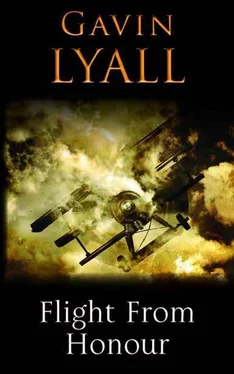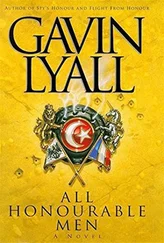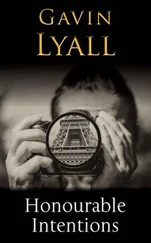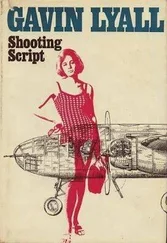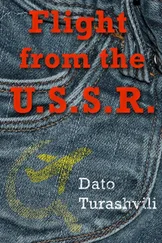Gavin Lyall - Flight From Honour
Здесь есть возможность читать онлайн «Gavin Lyall - Flight From Honour» весь текст электронной книги совершенно бесплатно (целиком полную версию без сокращений). В некоторых случаях можно слушать аудио, скачать через торрент в формате fb2 и присутствует краткое содержание. Год выпуска: 2013, Издательство: PFD Books, Жанр: Шпионский детектив, Исторический детектив, на английском языке. Описание произведения, (предисловие) а так же отзывы посетителей доступны на портале библиотеки ЛибКат.
- Название:Flight From Honour
- Автор:
- Издательство:PFD Books
- Жанр:
- Год:2013
- ISBN:нет данных
- Рейтинг книги:4 / 5. Голосов: 1
-
Избранное:Добавить в избранное
- Отзывы:
-
Ваша оценка:
- 80
- 1
- 2
- 3
- 4
- 5
Flight From Honour: краткое содержание, описание и аннотация
Предлагаем к чтению аннотацию, описание, краткое содержание или предисловие (зависит от того, что написал сам автор книги «Flight From Honour»). Если вы не нашли необходимую информацию о книге — напишите в комментариях, мы постараемся отыскать её.
Flight From Honour — читать онлайн бесплатно полную книгу (весь текст) целиком
Ниже представлен текст книги, разбитый по страницам. Система сохранения места последней прочитанной страницы, позволяет с удобством читать онлайн бесплатно книгу «Flight From Honour», без необходимости каждый раз заново искать на чём Вы остановились. Поставьте закладку, и сможете в любой момент перейти на страницу, на которой закончили чтение.
Интервал:
Закладка:
“Probably not long. A few days.”
“Then, as you have already been robbed but nothing taken, the word will be passed that you have nothing of which to be robbed and you will be safe for the rest of your stay.” Then, with casual abruptness: “How is Senator Falcone?”
It was probably a trap, but the change of subject struck Ranklin dumb. “Huh? I beg your pardon?”
“The Italian Senator. You must know him.”
“I don’t think I’ve heard of him.”
“He was attacked and stabbed. In England.”
“No! Killed, you mean?”
Novak made a vague gesture. “Almost – perhaps.” He already seemed bored by the topic.
Ranklin put on a heavy frown. “Very distressing. And rare, for Britain.”
Novak had gone silent. So at last Ranklin said: “Is that all, then?”
“I could show you some photographs of criminals, to see if you recognised one.”
“But I didn’t see anyone, just my room, ransacked.”
“Of course. It would not help anyway, they all look the same: hideously ugly. It is nonsense to say there is no criminal type: just to see those photographs proves it. SO!” He sprang to his feet. “Thank you for coming in, I apologise that I can be of no more help, enjoy your short stay in Trieste, good day.”
He sat down again and Ranklin found his own way out.
You Have Been Warned, he thought. And by now he was pretty sure Novak himself had organised the room-searching. Trieste’s eyes were back.
He sent another cable before dinner. It was mostly facts and figures about Triestine trade, but included the phrase “feeling a bit ill” to tell the Bureau he was under suspicion. They had progressed that far in developing a cable code – if anybody remembered, that is.
He devoted the next morning to behaving like a loyal and industrious Sherring employee. He called on the British consul and both the other names Corinna had given him and – apart, he hoped, from persuading any police watchers that he wasn’t a spy – only reinforced the impression that Trieste’s Italian workforce was not about to go on strike. He didn’t fool himself that he “understood” the city after a bare twenty-four hours, just that he had seen no sign of the unrest they hoped for and plenty of signs pointing the opposite way.
He asked at the hotel desk if there were any cablegrams for him, but got only an odd, stiff smile. Damn it, had that policeman Novak been snooping round, staining his reputation? He stumped off towards the lift – but didn’t get there.
Police Captain Novak was guarding a large potted palm beside the lift gate, and in case the plant turned nasty, he’d brought two policemen to help out.
He took Ranklins’ arm and urged him towards the front door; he had a grip like a lobster. “When I arrest people like you,” he confided, “I am allowed the expense of a carriage. You may also ride in it, or you can be carried through the streets by my men. It makes no difference to me. Either way, I still get to ride in the carriage.”
27
Turin to Venice was 365 kilometres in a straight line, which was 227 miles, which was 3 hours 46 minutes at a steady 60 m.p.h. in a dead calm. Only it wasn’t going to be a dead calm, it was impossible to maintain a steady 60 m.p.h. and certainly not a straight line. But O’Gilroy had learnt that the original perfection of measurement and calculation was still vital. Then, when you spotted an unquestionable landmark, you could work out just how far off your perfect plan you were, in time or distance, and correct accordingly.
That left only the problems of identifying unquestionable landmarks you had never seen before in an unknown countryside and hazy weather – and getting some sense out of the compass. O’Gilroy had had no dealings with compasses before: they went with officers, and a rare old mess that combination usually made. Now, watching the needle swing unprovoked a good ten degrees either side of north, he had some sympathy with the lieutenants and captains of his Army past.
Andrew had been unworried. “Venice is on the sea, we can’t miss that. If you’ve any doubts, err to the south, so we’ll know which way to turn when we find the coast.”
But O’Gilroy was determined to do better than that. Flying was a matter of precision, and unless you started with that, there came a point when all you believed in vanished. He had experienced it even within a few miles of Brooklands aerodrome: a sudden sense of being utterly lost in an alien world. A familiar landmark, popping out from under the Boxkite’s wing, had saved him then. He remembered the sense of relief as everything clicked back into place, putting him just a few minutes from home. But he remembered also the sense of utter loss.
At least the haze meant that the wind was light, perhaps 10 m.p.h. at 2,000 feet where Andrew chose to fly. Their course headed just north of east, down the wide and ever-widening valley of the Po. It looked good agricultural land below, studded with farms that were like miniature fortresses – and maybe had been, in wilder days. O’Gilroy knew nothing of Italian history, but enough about mankind to assume that any flat rich land had been well fought over.
An hour and a quarter after Turin they were supposed to pass just north of Piave and south of Milan, which should give a reasonably accurate check on progress. But while Milan was obvious enough as a long sprawl of red roofs under a smoky haze, it was too obvious, too big. Towns and cities weren’t as neat as on the map: they straggled away into suburbs and half-absorbed villages, and he wasn’t sure about Piave at all. But the railway joining the two saved him with a near-precise position.
“We’re running late,” he called to Andrew, “and being pushed north. Head due east a while.”
Andrew nodded and nudged the Oriole slightly to the right, glancing down at the compass and then, probably, finding some landmark on the horizon and steering for it. O’Gilroy began re-calculating on the basis of a stronger south-east wind than they’d assumed.
There weren’t, or shouldn’t be, any more cities until they passed Verona, an hour and a half ahead, and O’Gilroy tried to relax. He had never foreseen that so much flying would be like this: as dull as marching across the South African veldt. The engine droned steadily, a fine mist of castor oil condensed on the little glass windshield – it was really more an oil-shield; they both wore goggles against the wind – and Andrew corrected the little joggles in the air with minute movements of the stick. Getting rid of the bulky control wheel of earlier aircraft was one of the Oriole’s modern touches. And the stick was topped by a “blip” switch to cut off the ignition momentarily, so Andrew could leave the petrol and air levers alone once he had achieved the delicate balance needed. True, the switch worked (he said) by transferring the current from the ignition to his thumb, but it did work.
O’Gilroy looked at his wristwatch, checked the revised timetable scrawled on the edge of the folded map, and began looking ahead for a useful conjunction of river and railway that should pinpoint them at Pontevico. They trudged on across the wide veldt of sky.
This wasn’t the normal town jail for drunks and pick-pockets. That might be modern, light and airy, built according to the latest humanitarian theories of penal reformers. Ranklin doubted that, but it was still possible. Any theories about this Castello dungeon came from four centuries ago.
And at first glance in the dim light, so had the other occupant. Ranklin seemed to have strayed into popular romance, where jails always had a gaunt, bearded prisoner who had been there since forever. But as the man got up from one of the three army-style iron cots, Ranklin saw this one was merely dirty, ragged, tousle-haired – no beard – and possibly younger than himself. His smile showed even but stained teeth, and he said something in a crackling language that was probably Slovenian.
Читать дальшеИнтервал:
Закладка:
Похожие книги на «Flight From Honour»
Представляем Вашему вниманию похожие книги на «Flight From Honour» списком для выбора. Мы отобрали схожую по названию и смыслу литературу в надежде предоставить читателям больше вариантов отыскать новые, интересные, ещё непрочитанные произведения.
Обсуждение, отзывы о книге «Flight From Honour» и просто собственные мнения читателей. Оставьте ваши комментарии, напишите, что Вы думаете о произведении, его смысле или главных героях. Укажите что конкретно понравилось, а что нет, и почему Вы так считаете.
